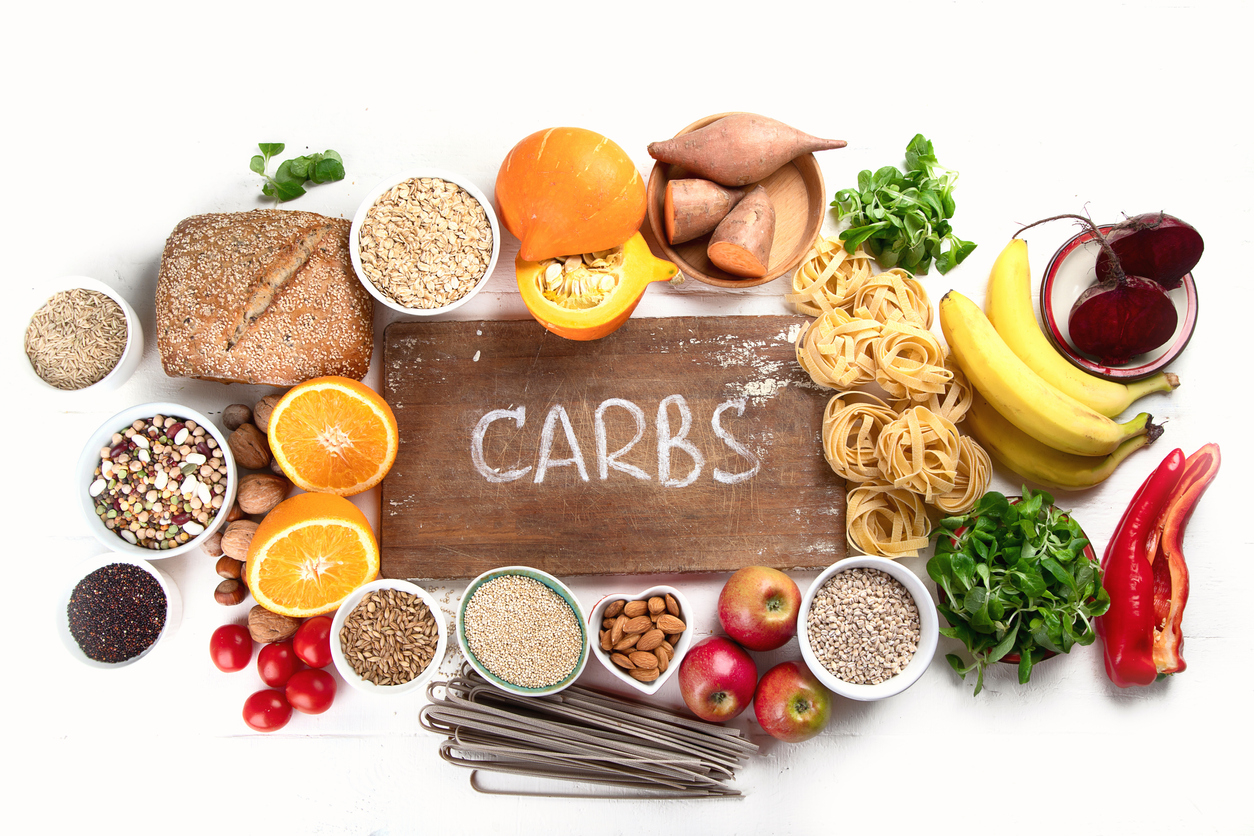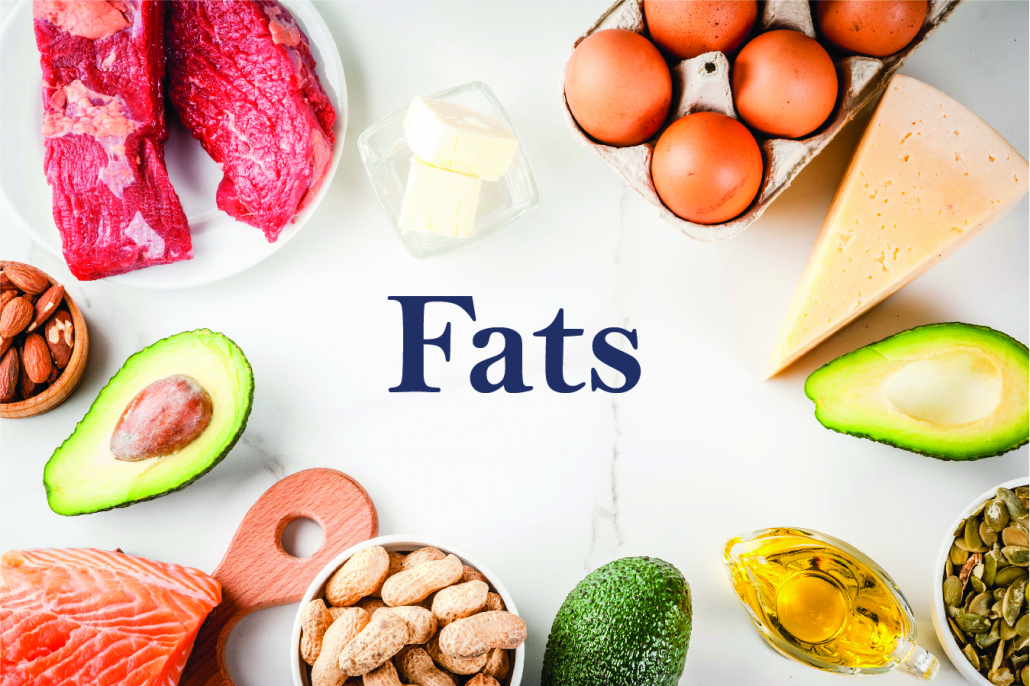Macronutrients are the nutrients in food that your body needs in large amounts: carbohydrates, lipids, and protein. These nutrients give you vitality and maintain your body systems functioning.
In this article, you can find out why carbohydrates, fat, and protein are essential for your body, what the best sources of macronutrients are, and why looking at the quality of your diet as a whole is better for your health than focusing on specific macronutrients.
What Are Macronutrients?
The nutrients available in food are categorized into two categories, based on how much your body needs: macronutrients and micronutrients.
Macronutrients are needed in significant quantities. Carbohydrates, lipids, and protein are macronutrients. Micronutrients, however, are needed in lesser quantities, and these include vitamins and minerals.
Macronutrients provide your body with vitality. But they are also crucial for many other things, like insulating you against frigid temperatures, making sure that all the cells in your body function, and nourishing the microorganisms in your intestines.
What Are Carbohydrates?

Carbohydrates are molecules that your body utilizes as its principal source of energy. They are vital for a wholesome diet.
Carbohydrates supply your body with glucose, which your cells use as sustenance. Certain complex carbohydrates, like fiber, also nourish your intestinal microbiome.
These molecules can be found in a wide variety of foods, but not all sources are the same when it comes to your health.
There are three primary categories of dietary carbohydrates, and they have distinct functions in your body:
1. Sugars
Sugars, like glucose, fructose, and sucrose, are basic carbohydrate molecules. They are readily assimilated by the cells around your body, which use them for sustenance.
2. Starches
Starches are intricate carbohydrate molecules. They take longer to digest because your body must break them down into simple carbohydrates before your cells can use them for energy. This means that the energy from carbohydrates is discharged more consistently into the circulation.
3. Fiber
Fiber is a form of carbohydrate molecule that humans can’t metabolize. There are dozens of distinct varieties of fiber molecules.
The microbes in your intestine break down fiber into short-chain fatty acids (SCFAs). These are crucial for your health and help with blood sugar, blood lipid, and appetite control, and they feed your microbiome to strengthen your immune system.
Learn more about your gastrointestinal microbiome and why it’s vital for your health here.
Best Sources Of Carbohydrates
Research suggests that unadulterated or minimally processed foods are the healthiest source of carbohydrates.
This is because they typically have a blend of carbohydrates, grains, and fiber, plus vitamins, minerals, and many other potent plant antioxidants known as phytonutrients, which help prevent inflammation.
How much a food has been processed can make a difference to your health. Ultra-processed foods are usually less nutrient dense and have high quantities of added carbohydrates, sodium, unhealthy fats, and chemical additives, with few valuable nutrients.
For example, the carbohydrates from the fruits in a portion of apple pie have been broken down, and additional ingredients like sugar and butter have been added. This does not come with the same health benefits as consuming a whole apple, which has a higher ratio of fiber and carbohydrate to sugar.
In other words, sources of basic carbohydrates, such as whole fruits and milk, provide you with a number of distinct nutrients. But refined carbohydrates, such as those found in table sugar, only supply your cells with energy.
Choosing high-quality carbohydrates that sustain you and your intestinal microbes is important for your health. ZOE’s research, which includes the largest nutritional study of its kind, demonstrates that no two individuals respond to food in the same manner.
That’s why the finest carbohydrates to consume as part of your diet will be unique to you.
What Is Fat?

Fat is another vital nutrient that is essential for your health. Fat molecules, also known as triglycerides, comprise glycerol — which is a sugar alcohol — and three fatty acids.
Just like carbohydrates, fat can provide your body with energy. It also functions as insulation to keep you warm, is required for assimilation of fat-soluble vitamins A, D, E, and K, and is a source of essential fatty acids, like omega-3.
Your body can’t produce omega-3 itself, but it is important for optimal brain function. In fact, every cell in your body needs fat to function effectively.
There Are Three Primary Forms Of Dietary Fat
1. Unsaturated Fat
Unsaturated fat is liquid at ambient temperature and is generally considered a healthful lipid. There are two varieties of unsaturated lipids, monounsaturated and polyunsaturated. Omega-3 is a type of polyunsaturated lipid.
Research suggests that routinely consuming unsaturated fat can provide a variety of health benefits, such as promoting cardiac health and reducing the risk of mortality.
2. Saturated Fat
Saturated fat is solid at ambient temperature and is typically found in animal products and some vegetation. Saturated fat has long been associated with an increased risk of heart disease, inflammation, and toxic cholesterol levels.
But the science is not straightforward. More recently, research has called the link between saturated fat and cardiac disease into doubt.
3. Trans Fat
Artificially produced trans fat is created by refining vegetable oil. It is also known as partially hydrogenated oil.
Small quantities of naturally occurring trans fats can be found in beef and dairy fat.
Consumption of trans fat is linked to health complications, such as excessive cholesterol levels, an increase in inflammation, and insulin resistance.
The use of partially hydrogenated oil is now banned in the U.S. In the U.K., trans fats are still present in many ultra-processed and rapid foods.
Best Sources Of Fat
Your body requires fat to function, but quality is essential. Fats that have been metabolized can alter the way your body responds to food.
Unsaturated lipids are the healthiest option. While research is altering the way some experts view saturated fats, adhering to moderate quantities is in accordance with official dietary guidelines.
Low-fat dairy products often contain added sugar, which may contribute to excess weight and interfere with blood sugar control. Opting for full-fat dairy, even though it has saturated fat, can often be healthier than the low-fat alternatives.
What Is Protein?

Proteins are compounds that are made from long chains of amino acids. They are essential for your wellbeing and do several tasks around your body.
Enzymes are proteins that drive chemical reactions in your cells and organs. Proteins are also needed to produce other compounds, like neurotransmitters, hormones, and antibodies.
Like carbohydrates and lipids, protein can also provide energy, but the greatest use of protein is in cell formation and repair. This is particularly essential after exercising.
An adequate protein intake is an essential element of a balanced diet.
There are over 20 amino acids combining in diverse ways to create the millions of proteins in your body. Nine of these amino acids are considered essential amino acids, meaning your body can’t synthesize them. You must get them from diet.
There Are Two Distinct Categories Of Protein Sources
1. Complete Proteins
Complete proteins have all nine essential amino acids and are mostly animal proteins, such as beef, fowl, and fish. There are also a few plant options, such as quinoa and soy.
2. Incomplete Proteins
Incomplete proteins are lacking one or more essential amino acids. These include mostly plant substances, such as legumes and pulses, seeds, nuts, and whole cereals. To get all the essential amino acids, you need to consume a variety of these foods.
Best Sources Of Protein
As with carbohydrates and lipids, minimally processed, high-quality protein sources are the best option.
Read Also: 5 Surprising Health Benefits and Uses of Peaches
Diet Quality Is Essential
If you’ve ever had a surge of guilt after consuming your beloved delectable delicacy or indulgence, you’re not alone. But contrary to what your emotions may be telling you, the occasional less-than-healthy meal is typically not something to fret over.
Rather than obsessing over every piece of food or drink you place in your mouth, focus on your overall diet quality.
ZOE’s research demonstrates that each person’s response to food is unique and that a personalized approach is superior than one-size-fits-all recommendations.
With ZOE’s at-home device, you can uncover how you react to different foods and find out what types of food combinations work best for your body.
Focusing on diet quality takes a wider scope than the latest fad diet. It enables you to look at your overall dietary consumption, rather than counting each individual component of a meal.
A nutritious diet should be rich in high-quality plant-based foods, such as whole cereals, vegetables, fruit, nuts and seeds, as well as fermented foods that are beneficial for the intestinal microbiome. These give your body all the macronutrients it requires.
At ZOE, we believe that no cuisine should be off-limits and that the occasional indulgence forms part of a healthful diet.
Summary
Macronutrients — carbohydrates, lipids, and protein — are nutrients present in foods that your body needs in large quantities. These nutrients provide energy and are required for many bodily functions and movements.
For the best results, focus on consuming an overall high-quality diet, rather than monitoring specific quantities of macronutrient intakes.
Each individual has a unique response to diverse cuisines. Discovering your individual requirements enables you to consume for your health instead of attempting to conform to generalized, comprehensive diet recommendations.




